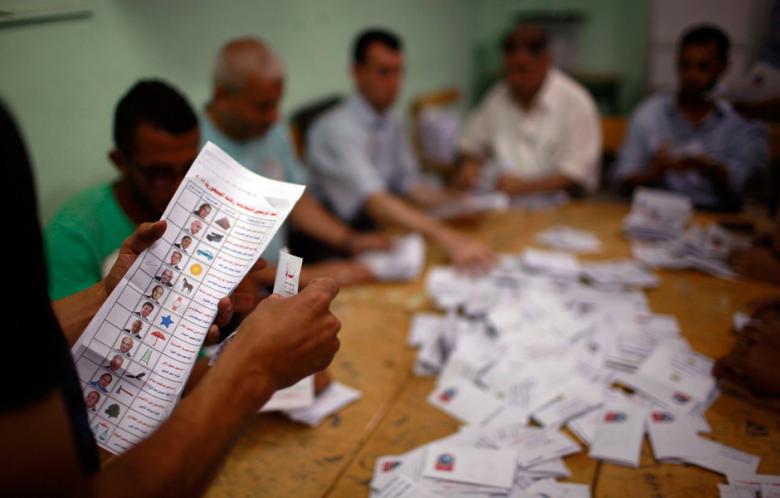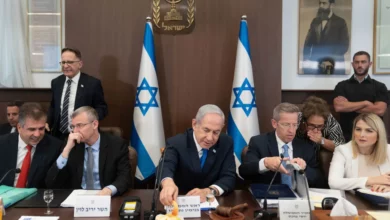With the approach of Egypt’s parliamentary elections, family dynamics can often become a major factor in Egypt's electoral process.
Throughout the country, an element of tribalism can be seen in which large, wealthy families–sometimes equipped with arms–dominate specific constituencies for decades. Some experts denounce this tribalism as the main challenge to a functioning democratic process.
In 1983 an electoral law was issued aimed at strengthening Egypt's fledgling multi-party system, based on proportional voting lists in which candidates must be members of political parties. In 1986, however, the Supreme Constitutional Court ruled the law unconstitutional since it barred those not affiliated with official political parties from running in elections.
The current candidate-based system is believed by many political observers to be a main reason for the domination of the country's political arena by influential families and tribes.
One example of this phenomenon was recently illustrated by former head of the liberal Wafd opposition party Mahmoud Abaza, sitting MP for Sharqeya. Abaza took family matters into consideration when he opted not to run in upcoming parliamentary elections against his brother, Amin Abaza, the ruling National Democratic Party (NDP) candidate and minister of agriculture.
During the 2005 elections, the Abaza family successfully stood up to the ruling party, with Mahmoud Abaza winning a fierce electoral campaign against the NDP candidate, retired general Yahya Azmy, brother of presidential chief of staff Zakaria Azmy.
Family loyalties were again given priority when, in 2005 elections, Investment Minister Mahmoud Mohieldin refrained from running against his close relative, Khaled Mohieldin, former leader of the leftist Tagammu Party. The latter ultimately lost the election to the Muslim Brotherhood candidate.
According to Amr Hashim Rabie, political analyst at the semi-official Al-Ahram Center for Political and Strategic Studies, the central role played by familial and tribal affiliations during election periods poses an obstacle to democratization.
Sometimes, big families will provide their candidates with the necessary support, even if the latter is not actively involved in solving the problems of his constituency.
This is currently the case with NDP candidate and Water Resources Minister Mohamed Nasreddin Allam, who depends to a large degree on his powerful family in the Upper Egyptian Sohag Governorate to mobilize popular support.
Journalist Maher Aboukail, who hails from the same district, says that, before becoming a minister, Allam was largely unknown to the bulk of constituents. But his family used its longstanding relations with other influential families in the area to garner support for his electoral campaign.
While big families are capable of mobilizing electoral support in favor of those from within their ranks, they can also use their influence to the detriment of certain candidates.
During the 2005 elections, a coalition of families stood against influential NDP candidate and former agriculture minister Youssef Waly, effectively handing the Muslim Brotherhood candidate an unprecedented victory in a vital electoral constituency in the Fayoum Governorate.
Conflicts between rival families are also not uncommon. In Assiut's Dairout constituency, for example, two leading families–the Kurashiya and the Kilaniya–have traditionally vied over the constituency's two parliamentary seats. In the 2005 elections, however, the NDP managed to reconcile longstanding conflicts between them by supporting a member of each family.
Another aspect of tribal-based electoral politics has to do with inter-familial divisions. For example, businessman Effat al-Sadat–of the family of late president Anwar al-Sadat–recently asked the NDP for permission to run in upcoming elections on the party list in one of the constituencies of the Menufeyya Governorate against his brother, Talaat al-Sadat.
Rabie says that conflicts such as these tend to transcend politics. "In developing countries, conflicts are often centered on family figures," he said. "This shouldn't be considered politics per se, but merely family issues that end up going public.”
Al-Ahram Center’s Nabil Abdel-Fattah says that the role of major families in Egyptian political life is deeply rooted in history.
"Before the 1952 revolution, wealthy landowners adopted strategies that prevented normal citizens from standing in elections," he explained. "Both politically and socially, they managed to monopolize power in most of the rural areas in the Delta and Upper Egypt."
But after the revolution, Egypt saw a continuation of the financial, political and social influence of large extended families, which, says Abdel-Fattah, served to illustrate the failure of western-inspired democracy to take root in Egypt.
This failure, he adds, has been reflected in the tendency of extended families to assume the role of mediator between state and citizen–a role seldom challenged by the state to this day.
The security apparatuses, for example, will often prefer to deal with family representatives rather than with the relevant individuals. This is seen especially in the all-too-common cases of the tar, or the family vendetta, according to a recent study conducted by South Valley University.
Until such trends are reversed, says Rabie, any discussion about political parties and programs–not to mention the transition to democracy–"will remain pointless and futile."




